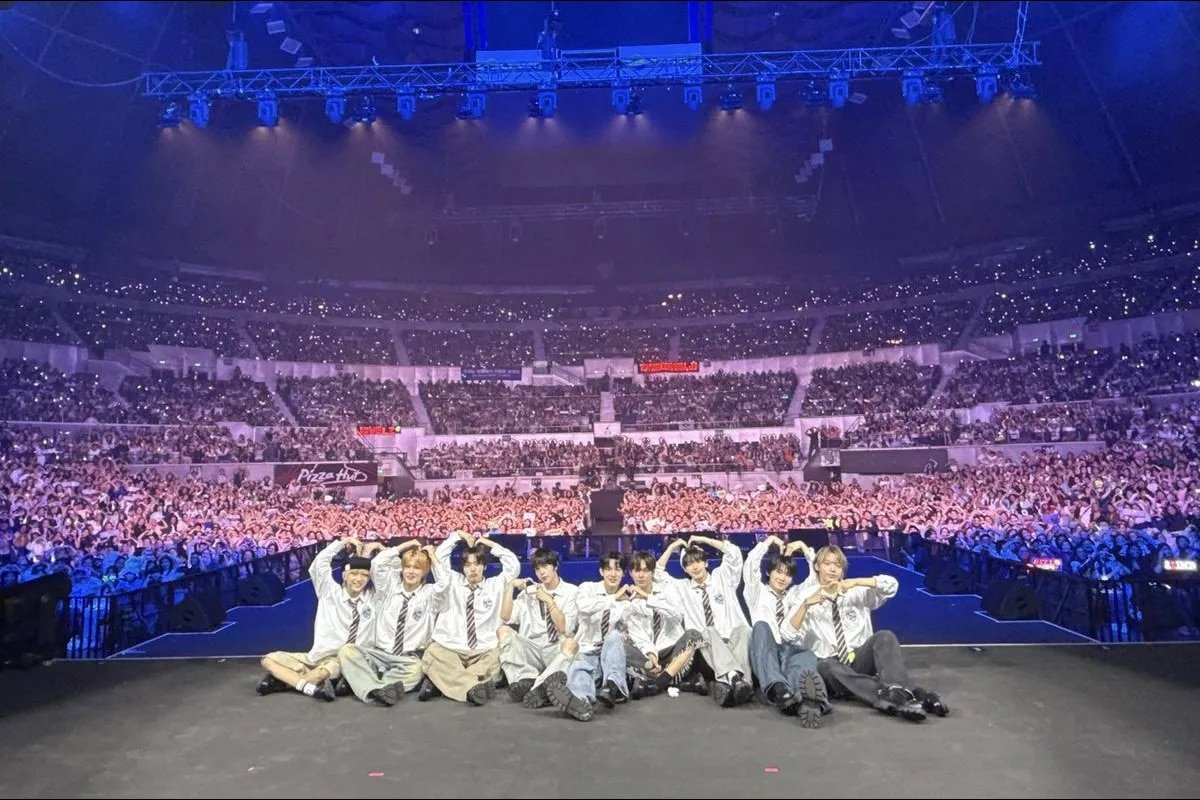Ruby Ibarra says decisively, “This is the moment I’ve been waiting for.” The Filipina rapper, who won this year’s Tiny Desk Contest, has come close to such a moment before. Early in her career, she’d received praise on prominent websites and performed with other up-and-coming musicians. Her music was featured on television shows, in commercials, and video games. The video for her powerful anthem “Us,” featuring spoken-word artist Faith Santilla and rappers Rocky Rivera and Klassy, has more than a million and a half views on YouTube.
But none of that has brought Ibarra the national recognition that comes with winning NPR’s prestigious Tiny Desk Contest and its accompanying 10-city tour (concluding at Howard Theatre on July 19). “NPR has given me such an amazing platform,” Ibarra says. “It’s been overwhelming, but exciting. It’s not lost on me that this is every artist’s dream.”
Perhaps this moment isn’t lost on Ibarra because it didn’t happen overnight. Her grind has been lifelong. She was born in the Philippines and moved to the San Francisco Bay Area in the ’90s, where her family quickly discovered that the American dream is often just out of reach. Her mother, an accountant in the Philippines, could only find work as a McDonald’s janitor.
But America during the ’90s was a seminal time for rap music, and Ibarra became a fan of Tupac Shakur and Lauryn Hill, whom she credits as early influencers. “Hip-hop, in its core and history,” she explains, “comes from a community that’s been historically marginalized. It comes from people who speak out against injustices.” Within hip-hop, Ibarra found her voice.
She released a mixtape in 2012, Lost in Translation, that showcased her skills: complex internal rhyme schemes paired with confrontational, fearless lyrics, and songs that effortlessly switched between English, Tagalog, and Bisaya. In particular, Ibarra wrote and rapped about her experience as an immigrant and, as much as this was personally cathartic, it provided her with an important revelation: “I started to understand, especially after Circa91 [Ibarra’s 2017 debut album] that I was writing for other people. People who didn’t feel like they had a voice. I realized there are people in the audience who resonate with my lyrics.”
Often, immigration’s narrative is only romanticized or demonized, but Ibarra writes beyond those artificial constructs; accordingly, audiences have responded to her authenticity. “I do wonder,” she admits, “when I step on stage and share my story, how it will be received. But now I’m seeing audiences gravitating toward music that speaks about resistance, music that’s honest. This kind of music, this kind of storytelling, is more important than ever.”
Her 2019 song “The Other Side, Welcome” vividly documents her experiences, and refuses to turn away from the racism, poverty, and loss of identity she’s encountered in the U.S.: “I pray to a white God, prey to this system/ Put on a white mask, hating this brown skin/ Slave to the green bills, faker than Green Hills/ Hoping the fame will/ Make me escape, red pill or blue pill, a head filled with no rea/ True feel of self, will, I choose fate or own will?”
There might be both shame and pain in sharing those lyrics, but it’s a toll Ibarra pays over and over in her songs. “The more honest you are, the more passionate and beautiful the music will be, and the more necessary and impactful,” she says, “I want to be completely honest, even if it draws from pain, even if it’s from somewhere I don’t want to remember anymore.”

But there’s also a restless hunger for success in “The Other Side, Welcome,” and that pursuit is both a constant in her music and a tireless drive outside of it. Ibarra has directed her own videos, started a scholarship for self-identified Pinays/x students who pursue a combination of arts and activism, and recently, borne of the desire to help musicians advance their careers, co-founded her own label with Angelo Macaraeg, Bolo Music Group.
“My own career has been a long trek upwards,” Ibarra says. “Now I’m in the position where I’ve made connections and have resources I can share. There needs to be more Filipino American artists out there, more AAPI artists, more women in hip-hop. Those are the things we’re trying to challenge, and change, with Bolo.”
Ibarra’s determination shines when watching her perform, or listening to her talk about her music and aspirations. It’s similarly apparent in her music, in the way her voice has the flow and fury of a river rewriting the land. And this spirit has never been more evident than it is in “Bakunawa,” the song she and her band, the Balikbayans, performed to win the 2025 Tiny Desk Contest, a stirring intergenerational collaboration that ties personal empowerment into Filipino mythology: “Howl at the moon, watch it bloom when I rule this/ Brown like the bamboo roots that we grew with/ Brown like the womb, the cocoon of the movement/ Bound to my doom ’cuz it looms like this tune/ Shoot you down like the moon, wear the crown, I resume!”
The joy in those lyrics is palpable but, regardless of whether her truth is mired in pain or pride, Ibarra has no plans to stop storytelling. She considers the questions: If the struggle could ever become too much to write about? If the shadow falling over immigrant rights is too dark? If the mantle she’s spent her life training to hold is worth its weight, now that she’s grasping it?
“I wish I could say that the responsibility doesn’t affect me at all,” Ibarra says finally. “But it does. Especially now, being a mother [Ibarra recently had her first child] and thinking about the messages I put out there. I grapple with being an artist and my responsibilities.
“At the same time, I’m grateful to have a platform, to have a microphone in my hand during these times.”
Ruby Ibarra’s Tiny Desk Contest starts at 8 p.m. on July 19 at Howard Theatre. tinydeskcontest.npr.org.
E.A. Aymar is a novelist and essayist based in the DMV. His most recent novel is When She Left.











